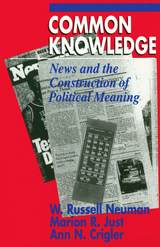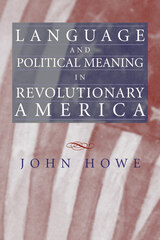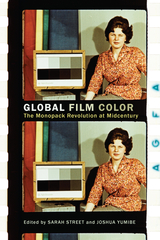2 books about Political Meaning

Common Knowledge
News and the Construction of Political Meaning
W. Russell Neuman, Marion R. Just, and Ann N. Crigler
University of Chicago Press, 1992
Photo opportunities, ten-second sound bites, talking heads and celebrity anchors: so the world is explained daily to millions of Americans. The result, according to the experts, is an ignorant public, helpless targets of a one-way flow of carefully filtered and orchestrated communication. Common Knowledge shatters this pervasive myth. Reporting on a ground-breaking study, the authors reveal that our shared knowledge and evolving political beliefs are determined largely by how we actively reinterpret the images, fragments, and signals we find in the mass media.
For their study, the authors analyzed coverage of 150 television and newspaper stories on five prominent issues—drugs, AIDS, South African apartheid, the Strategic Defense Initiative, and the stock market crash of October 1987. They tested audience responses of more than 1,600 people, and conducted in-depth interviews with a select sample. What emerges is a surprisingly complex picture of people actively and critically interpreting the news, making sense of even the most abstract issues in terms of their own lives, and finding political meaning in a sophisticated interplay of message, medium, and firsthand experience.
At every turn, Common Knowledge refutes conventional wisdom. It shows that television is far more effective at raising the saliency of issues and promoting learning than is generally assumed; it also undermines the assumed causal connection between newspaper reading and higher levels of political knowledge. Finally, this book gives a deeply responsible and thoroughly fascinating account of how the news is conveyed to us, and how we in turn convey it to others, making meaning of at once so much and so little. For anyone who makes the news—or tries to make anything of it—Common Knowledge promises uncommon wisdom.
For their study, the authors analyzed coverage of 150 television and newspaper stories on five prominent issues—drugs, AIDS, South African apartheid, the Strategic Defense Initiative, and the stock market crash of October 1987. They tested audience responses of more than 1,600 people, and conducted in-depth interviews with a select sample. What emerges is a surprisingly complex picture of people actively and critically interpreting the news, making sense of even the most abstract issues in terms of their own lives, and finding political meaning in a sophisticated interplay of message, medium, and firsthand experience.
At every turn, Common Knowledge refutes conventional wisdom. It shows that television is far more effective at raising the saliency of issues and promoting learning than is generally assumed; it also undermines the assumed causal connection between newspaper reading and higher levels of political knowledge. Finally, this book gives a deeply responsible and thoroughly fascinating account of how the news is conveyed to us, and how we in turn convey it to others, making meaning of at once so much and so little. For anyone who makes the news—or tries to make anything of it—Common Knowledge promises uncommon wisdom.
[more]

Language and Political Meaning in Revolutionary America
John Howe
University of Massachusetts Press, 2009
Between the Declaration of Independence and the federal constitution, the American revolutionary generation produced an enormous body of writing on political matters. Using the written word as an instrument of political action, they articulated ideologies, negotiated conflicts, and charted the future of a new nation. In the process, John Howe argues, American writers effected a fundamental transformation in the nature and expressive purposes of political language. Turning away from earlier assumptions about the capacity of language to capture universal truths and contain human behavior, they fashioned a new discursive practice based on the recognition that the language of politics, far from being fixed or even stable in structure and meaning, evolves over time. Securely in place by 1790 and clearly evident in the Federalist papers, this new language of political experimentation was well suited to the rapidly changing, open ended circumstances of American life. More than that, it proved essential to the emergence of a democratic politics. As Howe shows, only when language came to be used for the continuing exploration of political truth, only when it served to further popular discussion of contested ideas, could the construction of a genuinely democratic dialogue proceed. By challenging the notion that the founders of the republic were fully confident about the clarity or permanence of their language, this book also has implications for the ongoing debate over the doctrine of "original intent." According to Howe, the framers understood the constitution to be the product of a hurried and contentious process, reflective of the limitations of human intellect and the imperfections of human language. They saw it, in short, as but an approximation of universal truth, an approximation that future generations were certain to improve.
[more]
READERS
Browse our collection.
PUBLISHERS
See BiblioVault's publisher services.
STUDENT SERVICES
Files for college accessibility offices.
UChicago Accessibility Resources
home | accessibility | search | about | contact us
BiblioVault ® 2001 - 2024
The University of Chicago Press









